First Time Home Owner Questions
How much can I afford to spend on a home purchase?
The answer to this has a lot to do with your income and the amount of your debt load. As a rough rule of thumb, most homebuyers purchase homes that cost between 1 1/2 and 2 1/2 times their annual income. Of course, this figure can vary due to market prices in your area. If houses aren’t available within that range, you may need to spend a bit more. In general, however, your monthly mortgage payment cannot exceed approximately 28-29% of your gross monthly income. Your total debt payments (car payments, credit card payments, etc., plus the monthly mortgage amount) can’t exceed approximately 36-40% of your gross monthly income. These ratios will depend on the type of mortgage you apply for.
How much can you Afford?
Lenders use qualifying ratios to determine how much of a mortgage you can reasonably afford. It is important to remember that these ratios may vary from lender to lender and each application is handled on an individual basis.
Housing Expenses
Your montly housing costs include the mortgage principle, interest, taxes and insurance often abreviated PITI. Generally speaking, to qualify for conventional loans, housing expenses should not exceed 26% to 28% of your gross monthly income. For FHA loans, the ratio is 29% of gross monthly income.
Example:
Annual Income | Gross Monthly | Max. Conventional | Monthly Housing | |
$45,000 | ÷ 12 | $3,750 | x 28% | $1050 |
$65,000 | ÷ 12 | $5,000 | x 28% | $1400 |
As a General rule, any loans that extend beyond 11 months, such as automobile loans, are termed long-term debt.For conventional loans, total monthly payments, including PITI and all other long-term debt, should be no more than 33% to 36% of your gross monthly income. For FHA the ratio is 41%.
Budgeting for a new home purchase
When budgeting to buy a home, it is important to allow enough money for additional expenses such as:Utilities, maintenance, property insurance, homeowner’s insurance, and other known costs.
How much will my closing costs be?
The amount of closing costs will depend on what items are customary for buyers and sellers to pay for in your area. Traditions vary greatly from one area of the country to another. In some areas, for example, the buyer pays for title insurance. In other areas, it’s the seller. In still other areas, the cost is split. Your agent can give you specific information on closing costs in your area. In addition, the amount of closing costs will depend on the number of points you pay with your mortgage loan, since these are generally paid in advance. (A point is 1% of your mortgage loan amount).
What first-time buyer programs are available?
There are literally hundreds of different programs available, depending on your location (city, state, or province). They vary greatly from program to program.
Should I spend the money to have a home inspection?
Absolutely. The $200 to $500 that a professional home inspection costs could be the best money you ever spend. Not only does the home inspection seek out any defects, the home inspector will often give you tips on maintaining and repairing your house.
Sample Home Buying Timeline
There are no absolutes on a time-frame for buying a home (some buyers find a home their first day out while others may take weeks or even months) but there are some general guidelines that can help with your overall planning. These time-frames can vary by the type of Real Estate market you are in. In an active market, they can be compressed (you will need to move quickly for desirable homes) but in a less active market you may have the luxury of a bit more time.
Time Prior to Desired Moving Date
3-4 Months | 2-3 Months | 5-6 Weeks | 3-4 Weeks | 1-2 Weeks |
“Develop a personal checklist” Start Mortgage Pre-Approval process” Find an Agent” Begin property search | “Compare and evaluate homes” Choose a home” Offer and purchase contract” Home Inspection” Closing arrangements | “Moving arrangements” Monitor mortgage process” Arrange for any school transfers or registrations ” Arrange homeowners insurance | “Start basic packing” Make address changes” Arrange for utilities at new home ” Purchase decorating items (e.g. draperies) for new home | “Verify mover” Verify closing details with settlement agent” Verify any final mortgage details” Packing |



